
Are you planning your next big trip? Ever thought about keeping your health safe while you’re out there? Travel can bring many health risks, like diseases and injuries. But don’t worry, with the right steps, you can travel safely and avoid health problems. This guide will give you expert advice to keep your family healthy on your trip.
Key Takeaways
- Prioritize pre-travel health preparations to ensure you’re prepared for your trip
- Understand the importance of travel health insurance and emergency planning
- Pack a comprehensive travel health kit to address a variety of medical needs
- Learn how to stay safe on the road and avoid common travel-related injuries
- Protect yourself from bug-borne diseases and vector-borne illnesses
Table Of Contents
- Importance of Pre-Travel Health Preparations
- Travel Health Insurance and Emergency Planning
- Packing a Comprehensive Travel Health Kit
- Staying Safe on the Road
- Avoiding Bug Bites and Vector-Borne Diseases
- Choosing Safe Food and Beverages
- Health safety while traveling
- Sun Safety and Heat Illness Prevention
- Importance of Hand Hygiene
- Precautions Around Animals
- Water Safety and Drowning Prevention
- Seeking Medical Attention While Traveling
- Key Considerations for Seeking Medical Attention Abroad
- Post-Travel Health Considerations
- Travel Health Resources and Information
- Conclusion
- FAQ
- Source Links
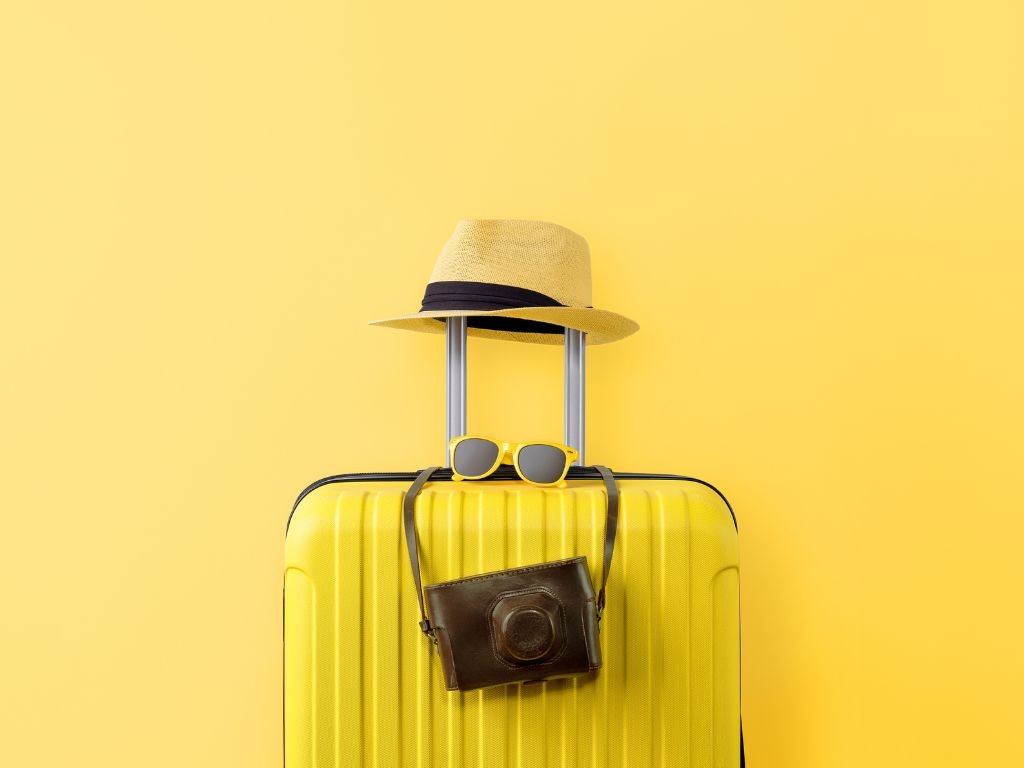
Importance of Pre-Travel Health Preparations
Before you start your vacation, make sure you’re ready for your health and safety. It’s key to plan for your health and safety before you go. These tips will help make sure you have a safe and healthy trip.
First, learn about your destination’s health risks and safety issues. Knowing this will help you make smart choices and take the right steps to stay safe.
Then, talk to your healthcare provider about your trip. They can give you advice, suggest vaccines, and prescribe medicines if needed. This step is vital for a healthy trip.
Also, be ready for emergencies by copying important papers like your passport and insurance. Share your contact info and trip plans with someone you trust back home. Joining the Department of State’s Smart Traveler Enrollment Program (STEP) can also give you safety updates and help in emergencies.
Doing these health preparations before you leave will help you have a safe and fun vacation. A bit of planning can protect your health and let you enjoy your trip more.
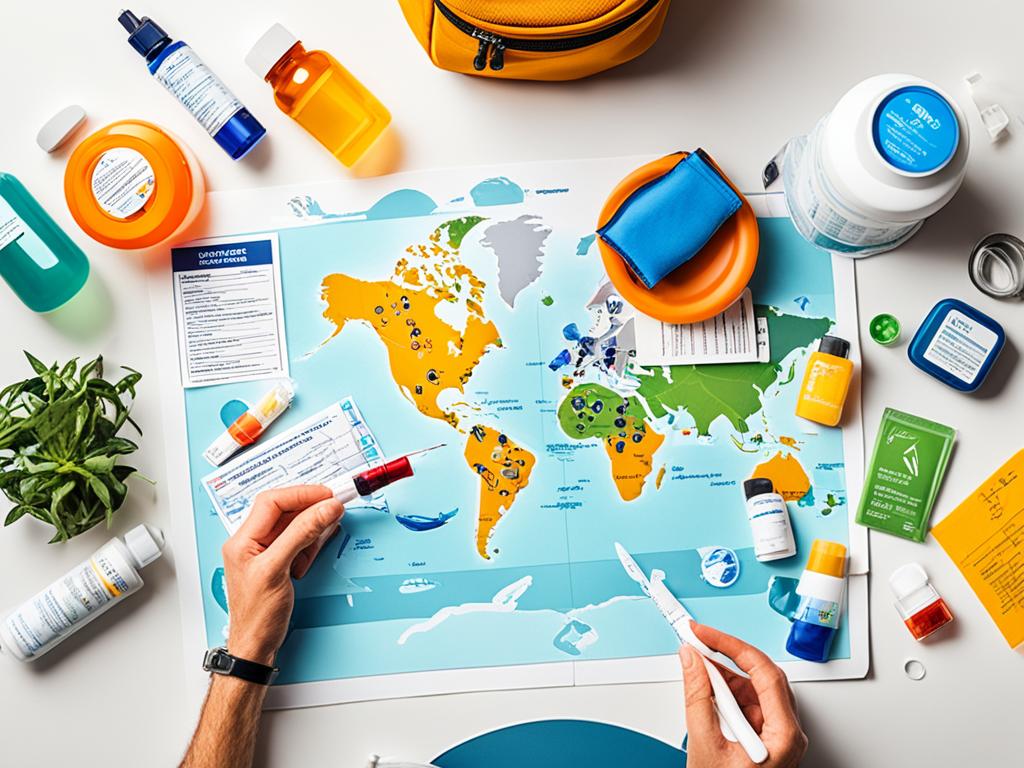
“Proper planning and preparation can make all the difference in ensuring a healthy and safe vacation.”
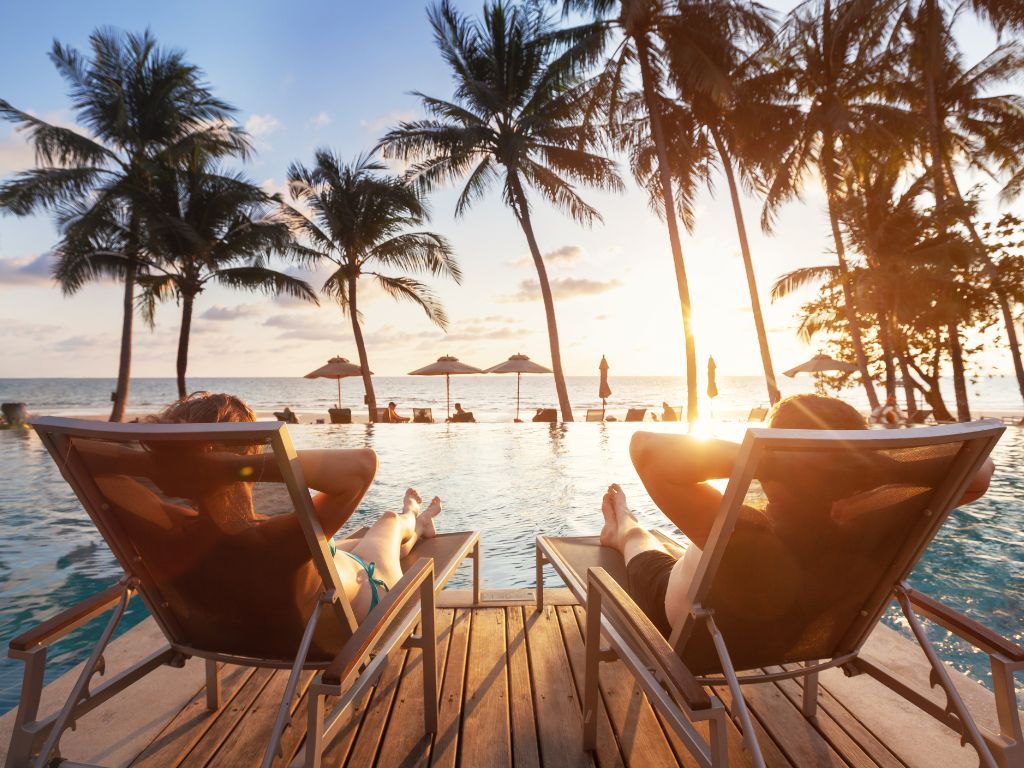
Travel Health Insurance and Emergency Planning
Buying travel health insurance is key to being ready for medical emergencies or unexpected health issues on vacation. Many health insurance plans in the U.S. don’t cover care outside the country. So, it’s vital to look into your options and pick a policy that covers medical costs and emergency evacuations if needed.
The U.S. government says Medicare and Medicaid don’t cover medical costs abroad. Private U.S. insurance might not cover all costs when you’re traveling. Travel health insurance can pay for emergency and routine medical services overseas. It’s strongly recommended, especially for countries with limited healthcare.
When picking a travel health insurance policy, make sure it covers emergency medical care, transport back to the U.S., and travel/accommodation costs. Also, consider getting extra insurance for health care and emergency evacuation, especially for remote areas.
It’s also important to know how to get medical care and call for emergencies in your destination. The U.S. Department of State can be reached at 888-407-4747 or 202-501-4444 for serious legal, medical, or financial issues while traveling.
“Preparing for the unexpected is key to a safe and enjoyable international trip. Comprehensive travel health insurance and knowing how to access emergency care can provide valuable peace of mind.”
By researching and getting the right travel health insurance and emergency plans, you can make sure your vacation is memorable and stress-free.

Packing a Comprehensive Travel Health Kit
Creating a travel health kit is key to keeping you safe on vacation. It should have essential medical supplies and personal care items for minor health issues. Packing this kit early makes sure you have what you need to stay healthy and comfy while traveling.
Begin by packing your prescription meds, both in their original containers and with generic names. Include over-the-counter items like pain relievers, anti-diarrheal medicine, and allergy meds. A first aid kit with bandages, gauze, antiseptic wipes, and tape is vital for minor cuts and injuries.
- Antibacterial hand wipes or alcohol-based hand cleaner containing 60% alcohol or more
- Sunscreen with an SPF of 15 or higher
- Insect repellent with 10-30% DEET for children or 30-50% DEET for adults
- Latex condoms
- Water purification tablets
- Extra pair of contact lenses or prescription glasses
Remember to pack personal care items like toothpaste, floss, and feminine hygiene products. Also, keep a copy of your health insurance and a list of your meds in case you need medical help while traveling.
With a well-prepared travel health kit, you’ll feel secure knowing you can handle minor health issues on your vacation. Taking the time to pack this kit ahead ensures you have the essentials for a healthy trip.
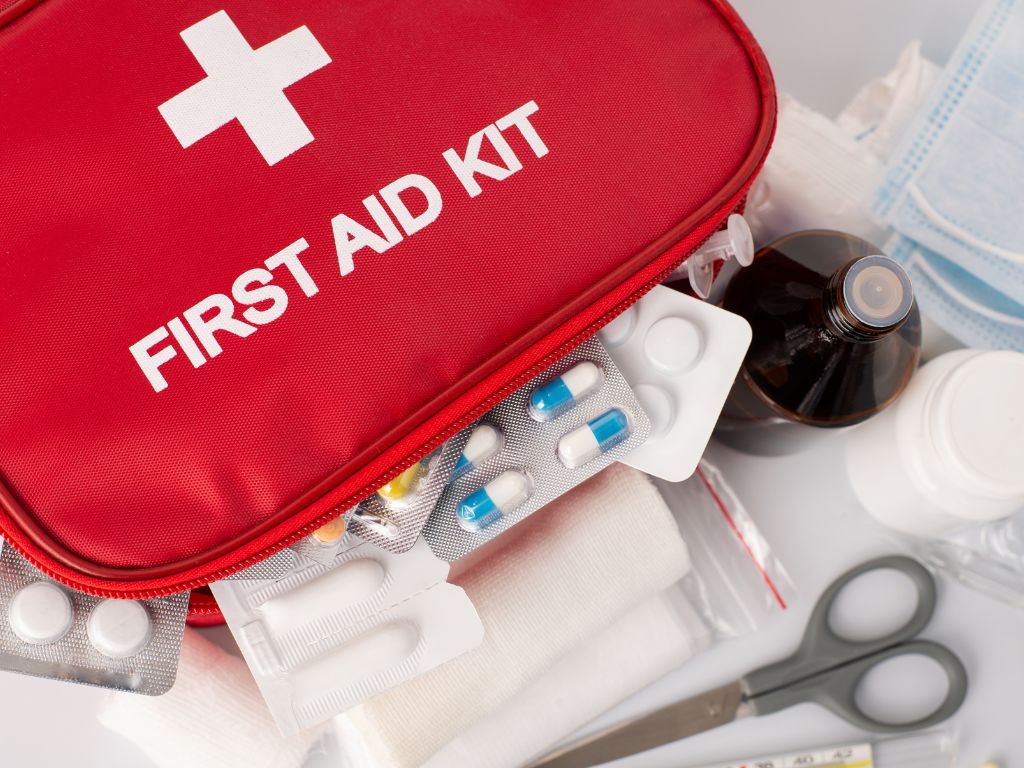
“Over fifteen years of traveling, I have encountered a multitude of minor injuries and accidents, showing the importance of having a well-stocked travel health kit.”
As someone who’s traveled a lot, I know how crucial a detailed first aid kit is. It’s not just for cuts and scrapes but also for unexpected indigestion. Having the right supplies can greatly help in dealing with these issues and keeping your trip smooth.
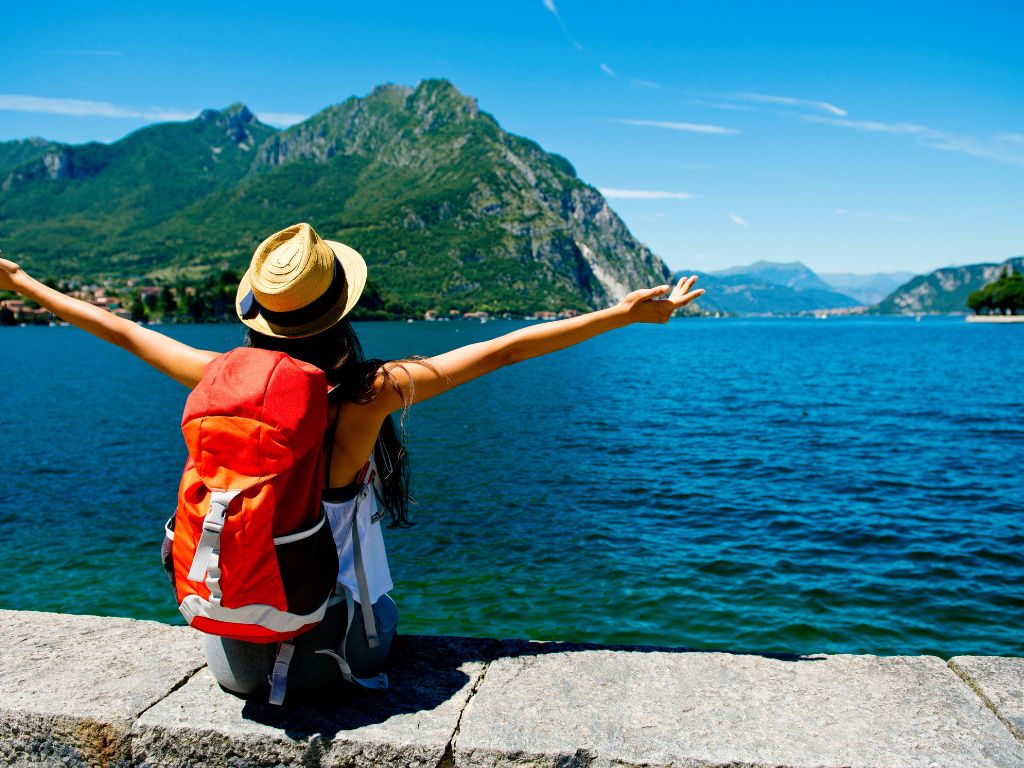
Staying Safe on the Road
Ensuring a safe and fun vacation means taking steps to stay safe on the road. As we start our road trip health and safety journey, let’s look at key tips for staying safe while travel safety while driving.
First, always wear a seatbelt and make sure kids are in the right car seats. This simple act greatly lowers injury risk in an accident. Also, be careful crossing streets, especially in places where cars drive on the left side. Unusual driving habits can be tricky, so stay alert to stay safe on safe transportation for vacations.
It’s important to avoid dangerous driving like speeding or driving while drunk. This not only risks your safety but also others’. By driving carefully, we can cut down on accidents. These are a big cause of injury and death for travelers.
For better car safety tips for travelers, check your car before you go. Look at tire pressure, fluids, and replace things like windshield wipers or brake pads. These steps can stop unexpected problems that could ruin your road safety for families on vacation.
Safe driving and being alert are key to a great road trip. By following these tips, you can relax and enjoy your trip. You’ll know you’ve put your health and safety first.
| Safety Tip | Importance |
|---|---|
| Wear seatbelts | Reduces the risk of injury in the event of an accident |
| Secure children in car seats | Ensures proper protection for young travelers |
| Avoid risky driving behaviors | Minimizes the likelihood of motor vehicle accidents |
| Perform vehicle maintenance | Helps prevent unexpected breakdowns or malfunctions |
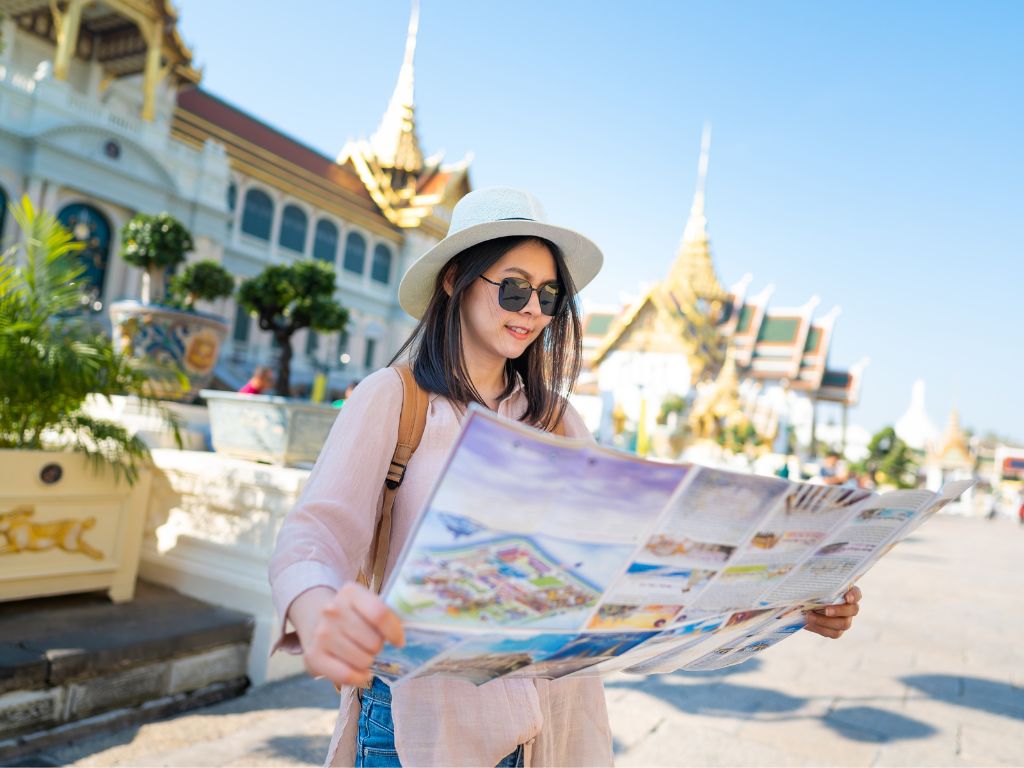
“Driving is a privilege, not a right. It comes with great responsibility to ourselves and others on the road.”
- Always wear a seatbelt and ensure passengers do the same.
- Secure children in age-appropriate car seats or booster seats.
- Avoid distractions like cell phones and keep your focus on the road.
- Adhere to speed limits and traffic laws to prevent accidents.
- Never drive under the influence of alcohol or drugs.
- Perform regular vehicle maintenance to ensure roadworthiness.
- Be extra cautious when driving in unfamiliar areas or countries.
By focusing on these road trip health and safety tips, you can make your journey safe and fun. This way, you can enjoy your vacation without worrying about road risks.

Avoiding Bug Bites and Vector-Borne Diseases
Going on vacation can be thrilling, but some places, especially in the tropics, can be risky. Illnesses like malaria, Zika, and dengue fever come from insects like mosquitoes and ticks. To stay healthy while traveling, I’ve learned key tips to prevent bug-borne illnesses.
First, I always use an EPA-approved insect repellent. These products, with DEET, Picaridin, or Oil of Lemon Eucalyptus, keep mosquitoes away. I also wear long sleeves and pants to cover my skin. And, I treat my clothes and gear with permethrin for extra protection.
When it comes to bug bites, timing matters. I avoid being outside when mosquitoes are most active, at dawn and dusk. If I’m in places without screens or AC, I use a bed net to keep mosquitoes away.
| Vector-Borne Disease | Transmitted By | Preventive Measures |
|---|---|---|
| Malaria | Mosquitoes | Use insect repellent, wear long clothing, take antimalarial medication |
| Zika | Mosquitoes | Use insect repellent, wear long clothing, avoid travel to areas with active Zika outbreaks |
| Dengue Fever | Mosquitoes | Use insect repellent, wear long clothing, avoid areas with active dengue transmission |
| Lyme Disease | Ticks | Use insect repellent, check for ticks after outdoor activities, remove ticks promptly |
By taking these steps, I can greatly lower my risk of getting vector-borne diseases on vacation. Being careful and proactive about bug protection is key to keeping healthy while traveling.
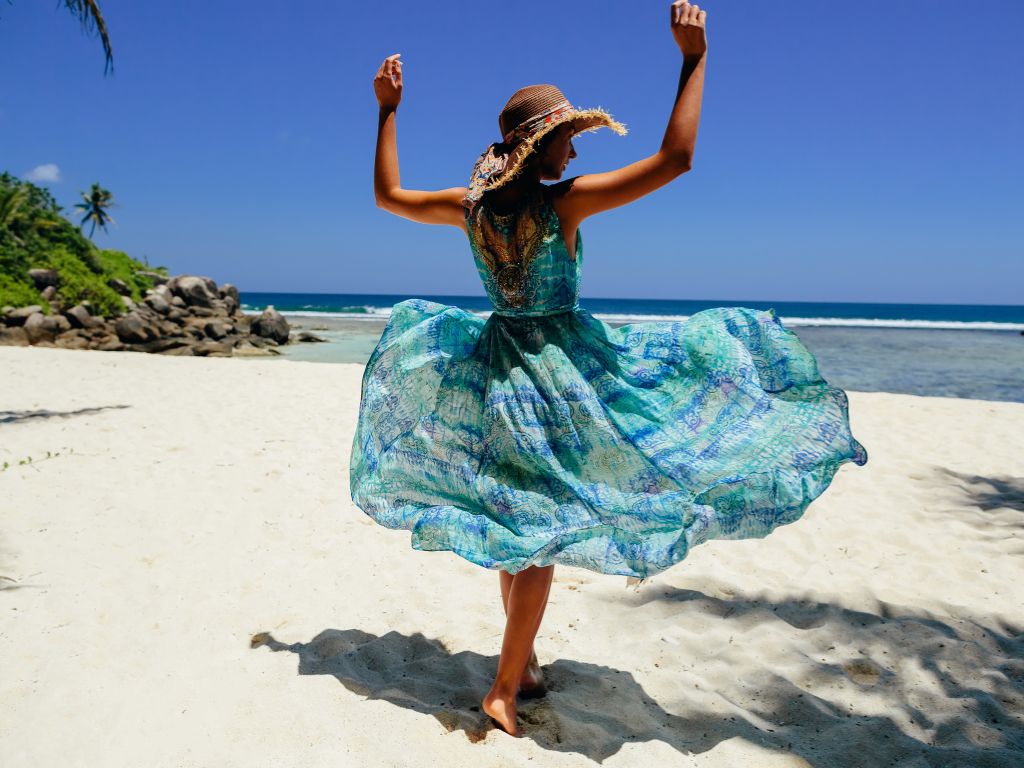
“Protecting yourself from insect-borne illnesses is an essential part of any travel health plan. Taking the right precautions can help ensure you have a safe and healthy vacation.”
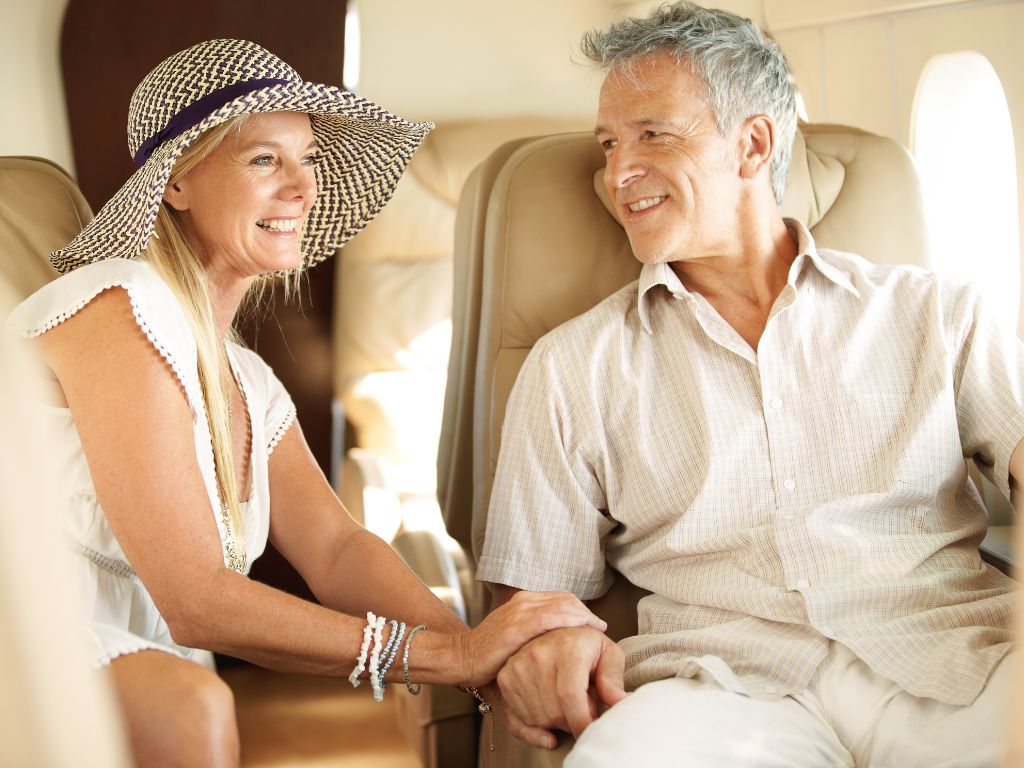
Choosing Safe Food and Beverages
Eating contaminated food or water can make you sick and ruin your vacation. It’s important to make smart choices about what you eat and drink while traveling. By following a few simple tips, you can lower the risk of getting foodborne illnesses and have a healthier trip.
Choosing hot food is a good way to avoid contaminated food. Germs that cause food poisoning grow best in a warm area between 40°F and 140°F. So, eating hot, freshly-cooked meals is safest. Also, dry and packaged foods like potato chips or canned tuna are safer because they don’t have the right conditions for bacteria to grow.
For drinks, go for bottled, canned, or hot beverages. Don’t drink tap water, as it might be contaminated in some places. If you’re not sure about the water, use water disinfection tablets or a portable water filter to make it safe. Carbonated drinks in sealed bottles or cans are also safe because the bubbles mean the bottle was sealed properly.
When trying local food, be careful. Avoid raw produce, undercooked meat or seafood, and unpasteurized dairy. Instead, choose fully cooked, hot dishes. And always peel fruits and vegetables before eating them.
By following these tips, you can greatly lower your risk of getting sick from food or drinks while traveling. Remember, it’s always better to be safe than sorry when it comes to your health.
| Food/Drink | Safety Tips |
|---|---|
| Hot, freshly-cooked meals | Germs that cause food poisoning grow quickly when food is in the “danger zone” between 40°F and 140°F, so hot, freshly-cooked meals are your safest bet. |
| Dry and packaged foods | Dry and packaged foods, such as potato chips or canned tuna, are generally safer choices as they typically lack the moist environment that allows bacteria to thrive. |
| Bottled, canned, or hot drinks | Tap water should be avoided, as the water supply in certain countries may be contaminated. Carbonated drinks in sealed bottles or cans are a good option. |
| Fully cooked, piping hot dishes | Avoid raw produce, undercooked meat or seafood, and unpasteurized dairy products, as they can all potentially harbor harmful bacteria. |
| Peeled fruits and vegetables | Opt for peeled fruits and vegetables to reduce the risk of consuming contaminated produce. |
Remember, most traveler’s illnesses come from eating contaminated food or drinks. These can be caused by bacteria, parasites, or viruses. By following these tips, you can prevent traveler’s diarrhea and other illnesses, making your vacation healthier and more fun.
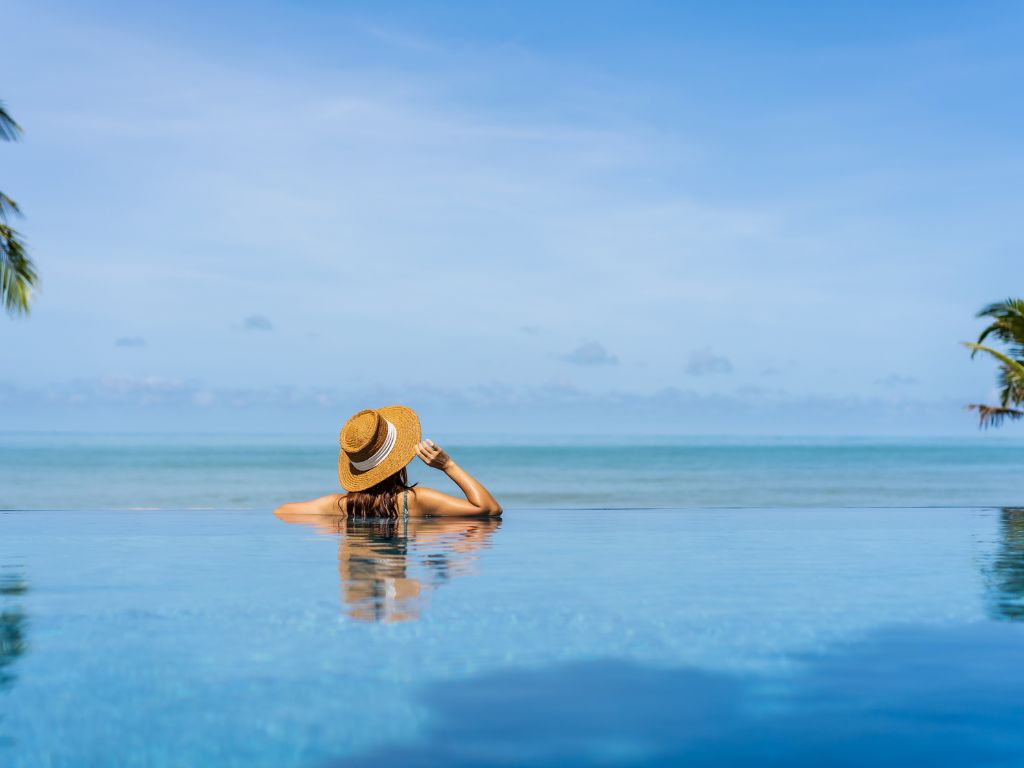
Health safety while traveling
Keeping your health and safety in check is key while on vacation. It’s important to prepare before you go and take steps to stay safe while there. Taking care of your overall health makes sure your trip is both safe and enjoyable.
Getting enough sleep, drinking plenty of water, and eating healthy foods boosts your energy and keeps your immune system strong. Managing stress and finding ways to relax helps with your well-being, too.
The World Economic Forum’s Travel and Tourism Competitiveness Report (2017) lists the top 20 safest places to visit. The Economist Intelligence Unit’s Safe Cities Index ranks 60 cities worldwide by their safety levels. The top five safest cities are Tokyo, Singapore, Osaka, Toronto, and Melbourne.
“Traveling in areas with poverty or civil unrest increases the risk of violence for travelers, highlighting the importance of safety measures and avoiding traveling alone in unfamiliar places.”
To stay safe and healthy while traveling, keep these tips in mind:
- Focus on hand hygiene and don’t touch animals to avoid getting sick.
- Choose chlorinated pools for swimming to stay healthy.
- See a doctor right away if you get insect bites or stings that swell, turn red, or hurt a lot.
- Join the Smart Traveler Enrollment Program (STEP) for safety updates from the U.S. Department of State.
- Check the Centers for Disease Control and Prevention (CDC) website for travel health advice, vaccine info, and safety tips.
Putting your health and wellness first while traveling ensures a safe and fun vacation. It also keeps you healthy and happy on the move.
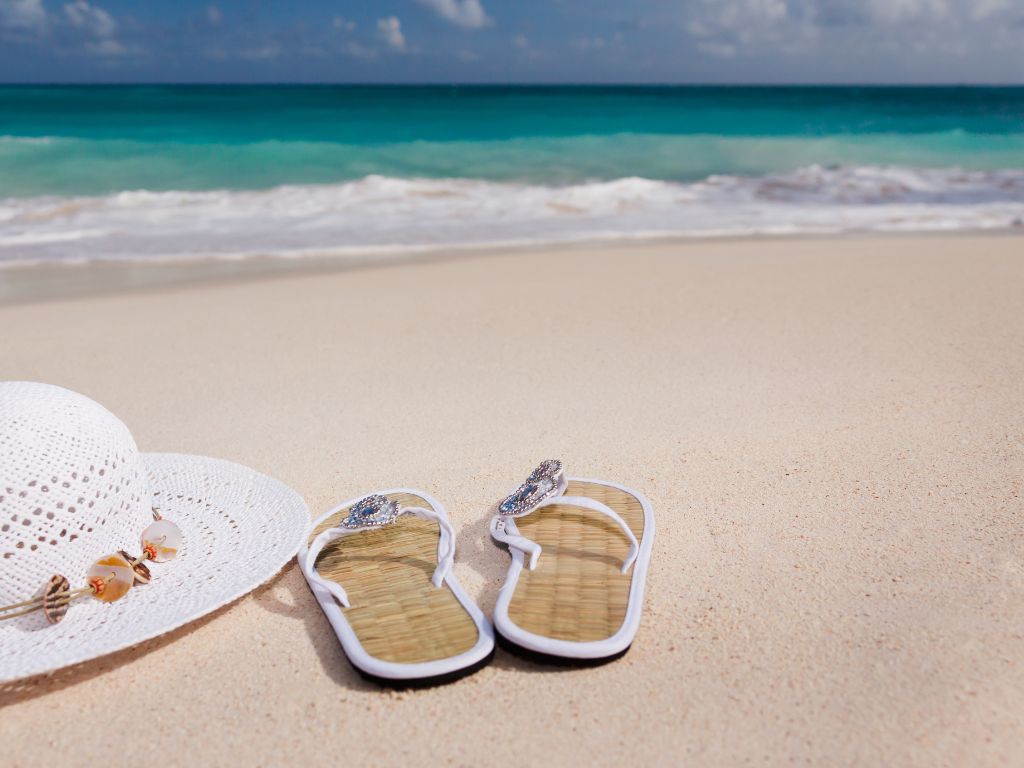
Sun Safety and Heat Illness Prevention
It’s important to protect your skin from the sun’s harmful UV rays, even on cloudy or cool days. Use a broad-spectrum sunscreen with an SPF of 30 or higher. Reapply it often, especially when you’re outside. Wear protective clothing like wide-brimmed hats, sunglasses, and lightweight, long-sleeved shirts and pants.
Also, be aware of the risks of heat-related illnesses like heat exhaustion and heatstroke in warm places. Drink plenty of water to stay hydrated. Try to limit your time in the sun during the hottest parts of the day. Take breaks in the shade or an air-conditioned space. Avoid hard outdoor activities during the peak heat hours.
| Sun Protection Tips | Heat Illness Prevention |
|---|---|
|
|
Follow these tips for sun safety and heat illness prevention to enjoy your vacation safely. Protect your skin from sun damage and avoid heat-related illnesses.
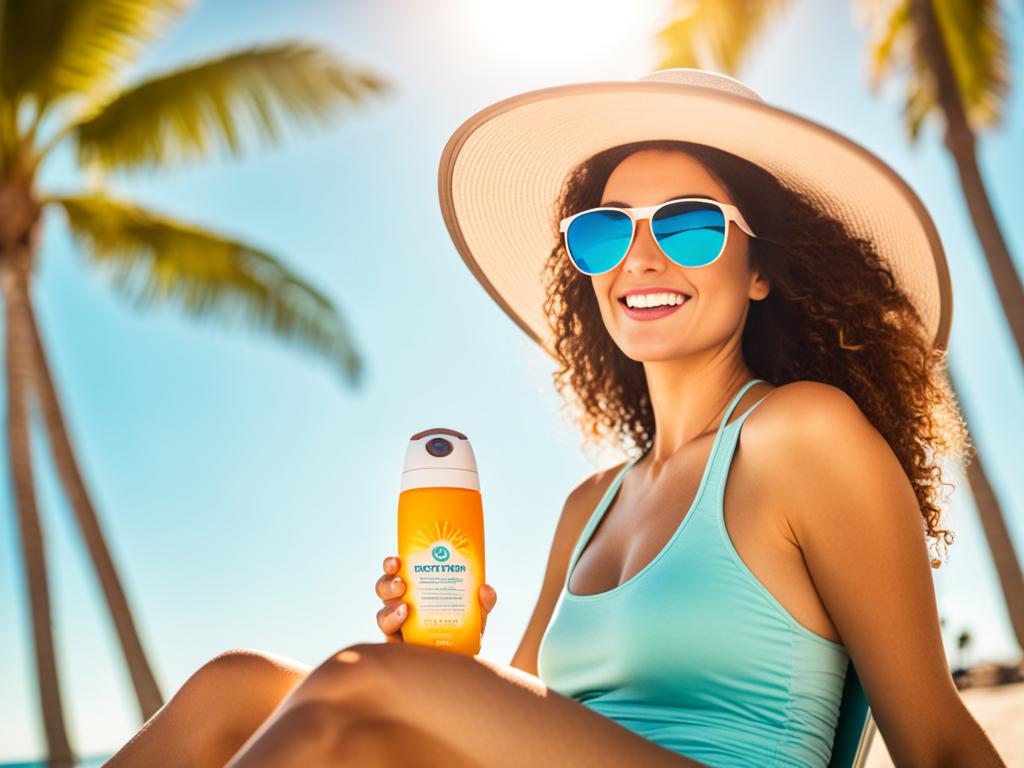
“Preventing sunburn and heat illness is crucial for a safe and enjoyable vacation. Take the necessary precautions to keep your skin and body protected from the elements.”
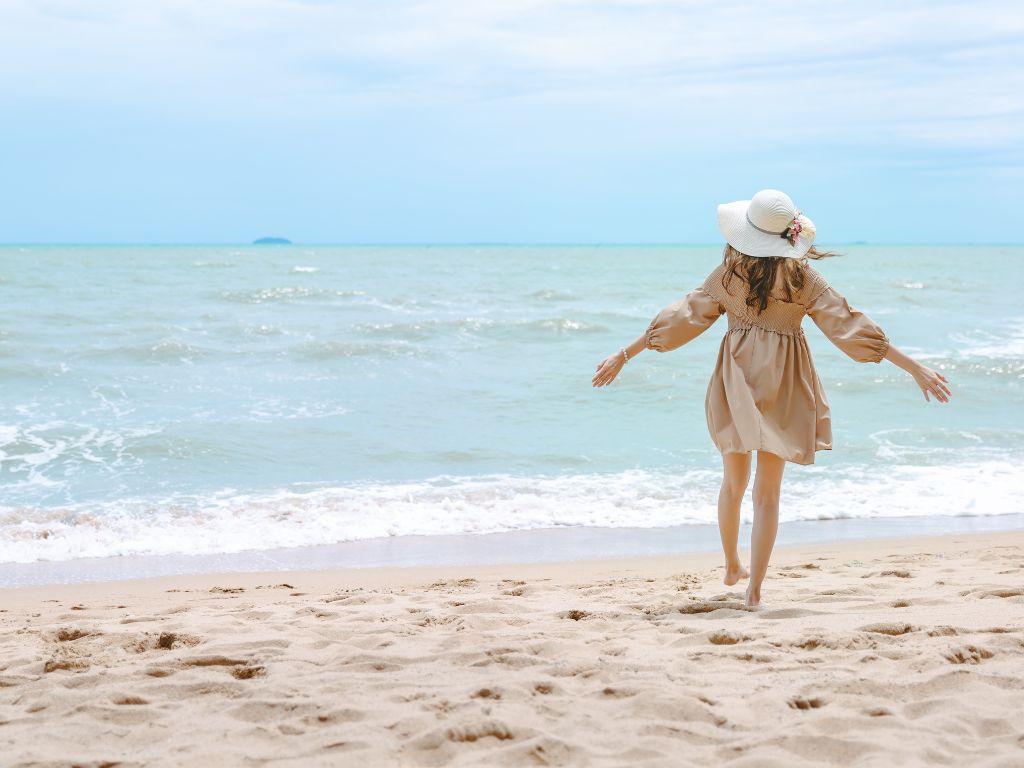
Importance of Hand Hygiene
Proper hand hygiene is key to preventing the spread of germs and staying healthy while traveling. Washing your hands with soap and water is the top way to avoid getting sick. If soap and water aren’t around, an alcohol-based hand sanitizer with at least 60% alcohol is a good alternative.
Experts say to wash your hands often, especially before eating and after using the restroom. Doing this can greatly lower the risk of spreading germs. Make sure to wash all parts of your hands, including the backs, wrists, palms, between fingers, and under nails.
Keeping your hands clean is crucial for a healthy trip. Global Handwashing Day is celebrated annually on October 15 to raise awareness about the importance of hand hygiene. The CDC also offers educational materials for kids and adults on handwashing.
- Wash your hands with soap and water whenever possible, especially before eating and after using the restroom.
- Use an alcohol-based hand sanitizer containing at least 60% alcohol when soap and water are not available.
- Scrub your hands for at least 20 seconds, making sure to lather all surfaces, including the backs of your hands, wrists, palms, between fingers, and under nails.
- Carry portable hand sanitizers that kill 99% of germs and bacteria while traveling to maintain good hygiene on the go.
- Educate yourself and others about the importance of proper handwashing techniques to help prevent the spread of illnesses during your trip.
| Handwashing Recommendations | Alcohol-based Hand Sanitizer |
|---|---|
| Wash hands with soap and water whenever possible | Use when soap and water are not available |
| Scrub for at least 20 seconds | Must contain at least 60% alcohol |
| Lather all surfaces of the hands | Effectively eliminates germs when handwashing is not feasible |
| Particularly important before eating and after using the restroom | Helps prevent the spread of illnesses while traveling |
By focusing on hand hygiene, you can lower your risk of getting and spreading illnesses on your trip. Staying germ-free is key to a healthy and safe vacation.

“Handwashing is considered one of the best ways to stay healthy and prevent the spread of respiratory and diarrheal infections.”
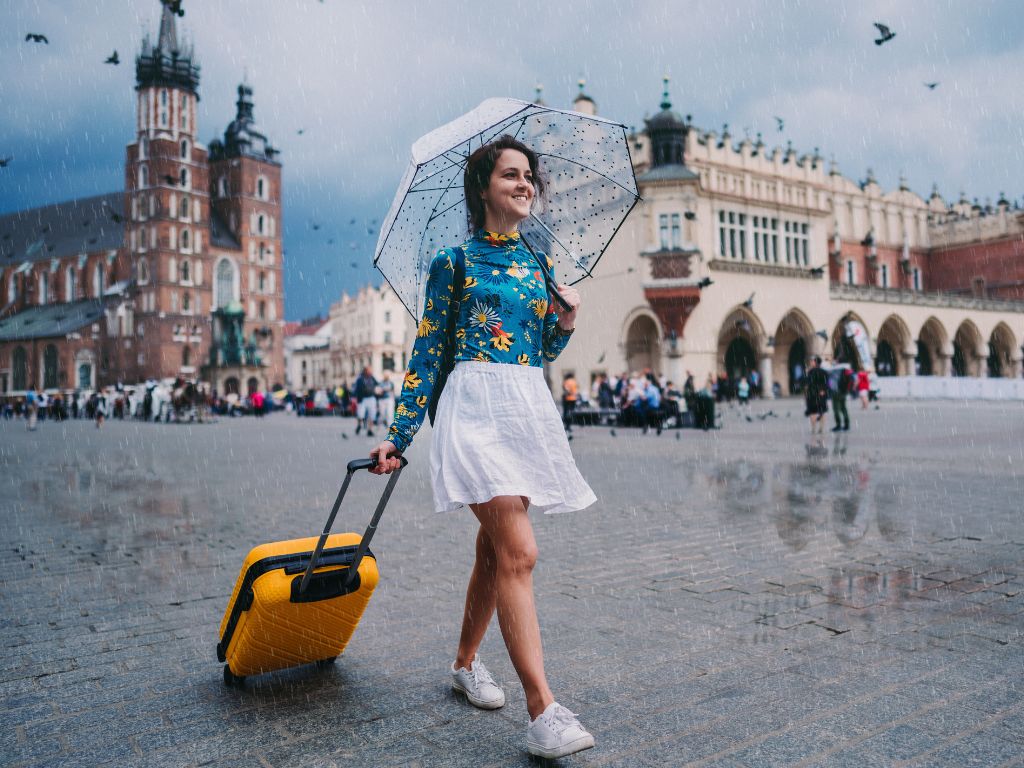
Precautions Around Animals
When you travel to new places, you might meet animals you’ve never seen before. These could be pets, farm animals, or wild ones. It’s important to be careful and keep a safe distance to avoid getting sick or hurt by animals.
One big worry is getting rabies from animals. Rabies is very dangerous and hard to treat in many parts of the world. If an animal bites or scratches you, clean the wound well and get medical help right away.
Some animals, like monkeys, can give you serious diseases like Ebola. Rodents can spread diseases like plague. And bats can carry rabies and other viruses.
Children are more likely to get hurt by animals. So, it’s key to watch them closely when they’re with pets or wildlife.
If you get bitten by an animal, you might need rabies shots. Start these shots right away to prevent the disease. But remember, not all places have these shots or medicine for rabies.

When taking pets on trips, know the risks and keep them safe. Airlines have rules for pets in cargo, and some pets get hurt or lost. Try to use direct flights and pick times when it’s not too hot or cold.
Make sure your pet’s collar won’t get caught in the carrier. Get your pet used to the carrier before the trip. Don’t feed them for a few hours before flying, but give them water with ice cubes. Try not to fly with pets during busy times like holidays.
By being careful and alert, you can have a safe and fun trip with your pets.
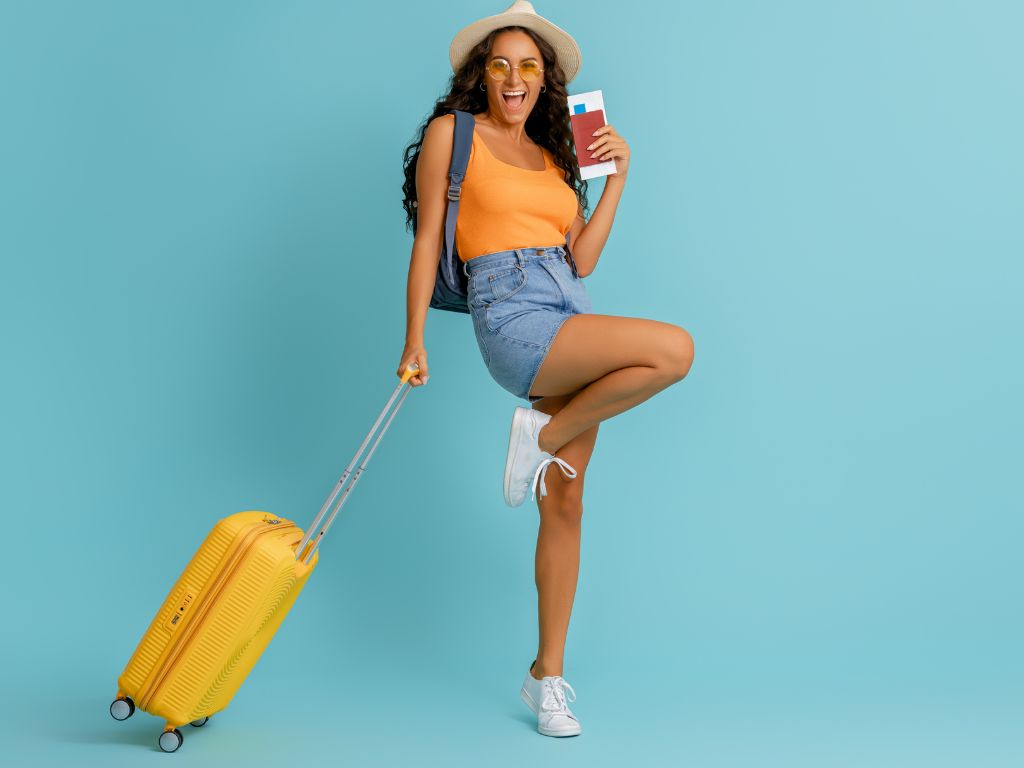
Water Safety and Drowning Prevention
Staying safe around water is key while on vacation. Drowning is a major cause of death that can be prevented. So, it’s important to know how to stay safe in the water.
Always follow safety rules when swimming, boating, or diving. Wear life jackets and don’t swim alone or in unknown waters. This is especially true in places where help might be hard to get.
Alcohol use is involved in 3 out of 4 deaths from water activities for adults and teens. So, it’s best to not drink before or while in the water. Drowning can happen very quickly, so always be alert and sober.
If you’re traveling with kids, be extra careful. Drowning is the top cause of death for young kids and the second for older kids. The American Academy of Pediatrics suggests swim lessons for kids as young as 1 year old to prevent these tragedies.
- Avoid flying for more than 24-48 hours after diving that needed decompression stops or 12 hours after a single dive without stops to prevent decompression sickness.
- Know how to spot rip currents and swim parallel to the shore to get out of them.
- Only use Coast Guard-approved life jackets, as others might not keep you afloat well.
By following these tips, you can have fun in the water without risking your safety. Remember, being careful and prepared can keep you and your loved ones safe.
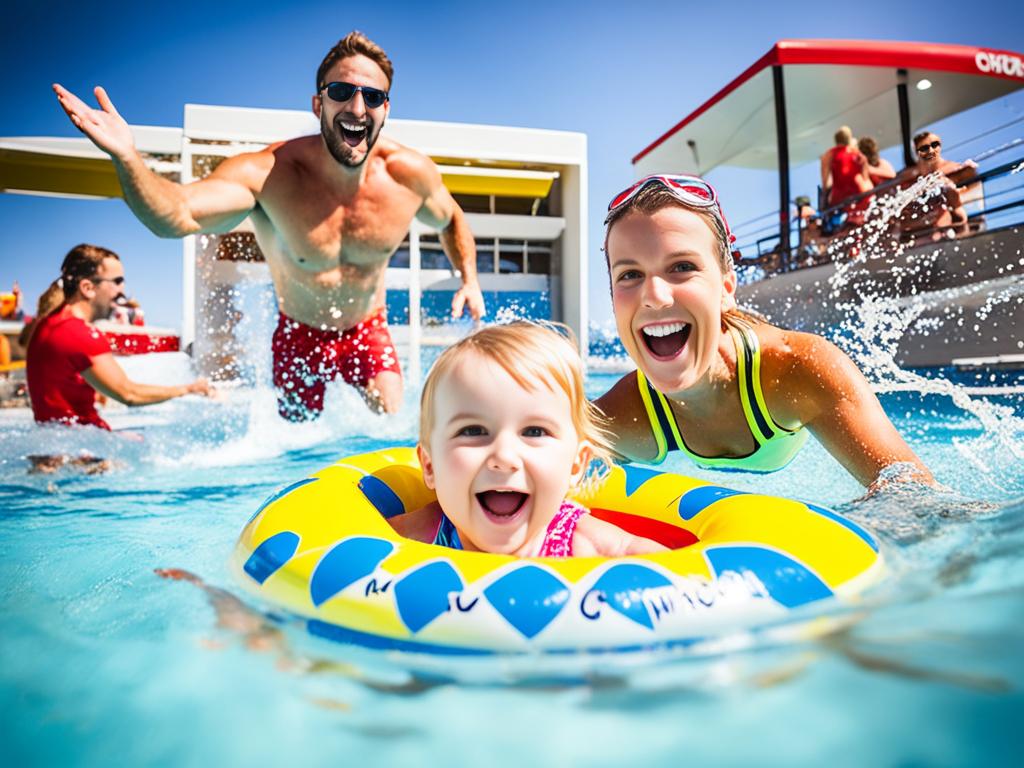
“Drowning is a leading cause of preventable death for travelers, so it’s crucial to prioritize water safety during your vacation.”

Seeking Medical Attention While Traveling
Getting sick or hurt while on vacation can be stressful. But, being ready and knowing what to do can help. It’s key to know how to get healthcare abroad, whether it’s for a small issue or a big emergency.
Before you leave, look into healthcare options at your destination. Know who to call for doctors, hospitals, and emergencies. Keep your health insurance info and medical history handy. This makes getting care faster and easier if you need it.
If you or someone with you gets sick or hurt, stay calm and act fast. Look for a doctor, clinic, or even hotel help. Tell the medical team about your insurance and your health situation. This helps them give you the best care and cover costs.
For serious emergencies, call for help or get to a hospital right away. Medical flights back to the U.S. can cost more than $250,000. So, having good travel insurance is very important.
| Key Considerations for Seeking Medical Attention Abroad |
|---|
|
Being proactive and knowing what to do for medical care while traveling can lessen stress and costs. Always put your health and safety first. Don’t wait to get medical help if you need it.

“Staying calm and proactive can help ensure you receive the care you need while away from home.”
Post-Travel Health Considerations
Even after a great vacation, keep your health and well-being in check. As you settle back into your routine, watch for symptoms and get medical help if you notice a fever or other issues within a few weeks of your trip. This is key if you visited places with health risks, as some illnesses can show up later.
Good hygiene and self-care can make coming back home easier. Drink plenty of water, rest well, and pay attention to any changes in your body or mood. These steps will help you smoothly return to your daily life after a well-earned break.
When to See a Doctor After Traveling
- Develop a fever, especially within a few weeks of returning from your trip
- Experience persistent or worsening gastrointestinal issues, such as diarrhea or nausea
- Have any unexplained rashes, skin irritations, or other unusual symptoms
- Feel unwell or have a general sense of malaise that persists for more than a few days
If you’re worried about your health after traveling, don’t hesitate to see a doctor. They can figure out and fix any problems, making it easier to get back to normal.
Tips for a Healthy Transition Back Home
- Prioritize rest and recovery upon your return
- Maintain good hand hygiene and avoid close contact with others if you feel unwell
- Eat a balanced, nutritious diet to support your immune system
- Stay hydrated by drinking plenty of water throughout the day
- Gradually return to your regular exercise routine, allowing your body to adjust
- Manage stress levels through relaxation techniques or mindfulness practices
By doing these things, you can ease your body and mind back into daily life after your vacation. Always put your health and well-being first, both while traveling and after.

“Listening to your body and taking proactive steps to maintain your health after a trip is just as important as planning the vacation itself.”
Travel Health Resources and Information
Planning a safe and healthy vacation is crucial. Luckily, there are many trusted organizations and websites that offer great advice. They help keep you safe and healthy while traveling.
The Centers for Disease Control and Prevention (CDC), the World Health Organization (WHO), and the U.S. Department of State are top places for travel health info. They give you alerts, vaccination advice, and tips to stay safe.
For top-notch advice on staying well while traveling, check out Traveler’s Health and Healthy Travel Checklist. These sites have lots of resources. You’ll find safety guides, real stories, and lists of healthcare providers to help you make smart health choices.
The Heading Home Healthy program also offers great advice. It focuses on keeping you healthy during and after your trip, especially if you’re visiting friends or family. They have a detailed travel health kit list and info on how to prevent diseases like malaria.
The CDC’s Country Information pages are great for planning a healthy trip. They cover over 190 countries, giving you info on visas, safety, health, and more. This ensures you’re well-prepared for a safe and healthy vacation.
Staying informed and proactive about your health is key to a worry-free trip. By using these trusted resources, you can travel with confidence and make lasting memories.
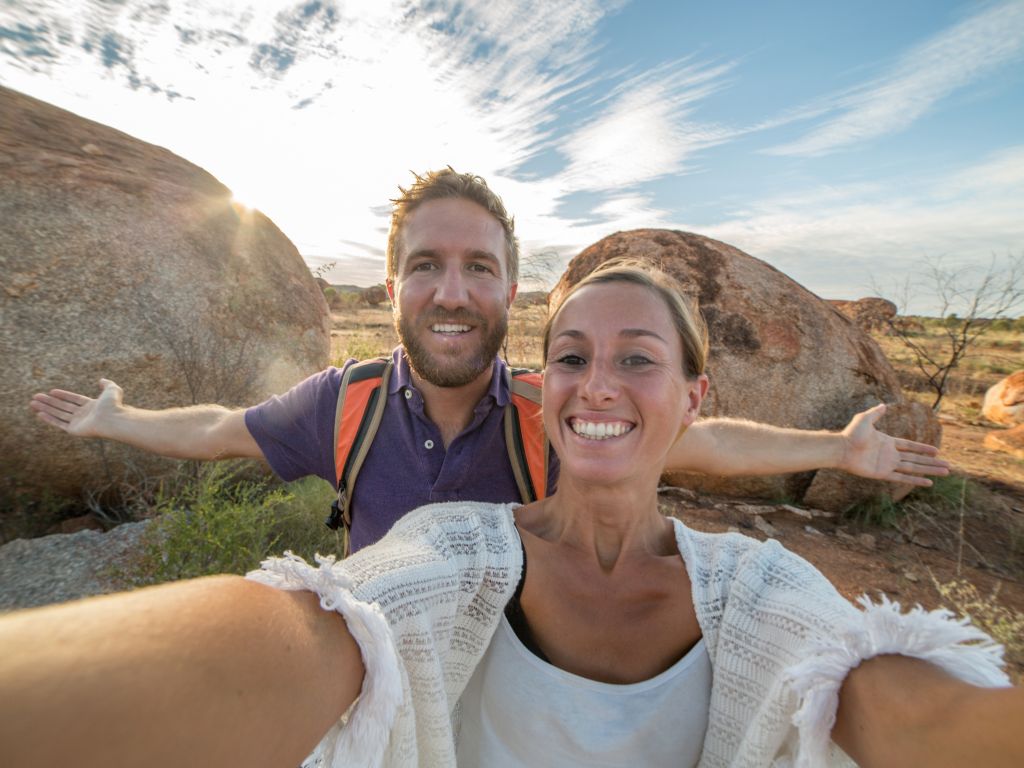
Conclusion
Follow the expert advice and practical strategies in this guide for a safe and healthy vacation. From getting ready before you go to being careful while you’re there, keeping your health in mind is key. This ensures you enjoy your time away from home.
With the right knowledge and a proactive mindset, you can travel the world with confidence. You’ll be ready for any health issues that might come up. Remember to get travel health insurance, pack a medical kit, watch out for diseases spread by insects, keep clean, and stay aware of your surroundings.
This article’s travel health tips should give you the confidence to start your next adventure safely and healthily. Remember, getting ready for health and safety is crucial. It lets you fully enjoy your vacation and make memories without risking your health.
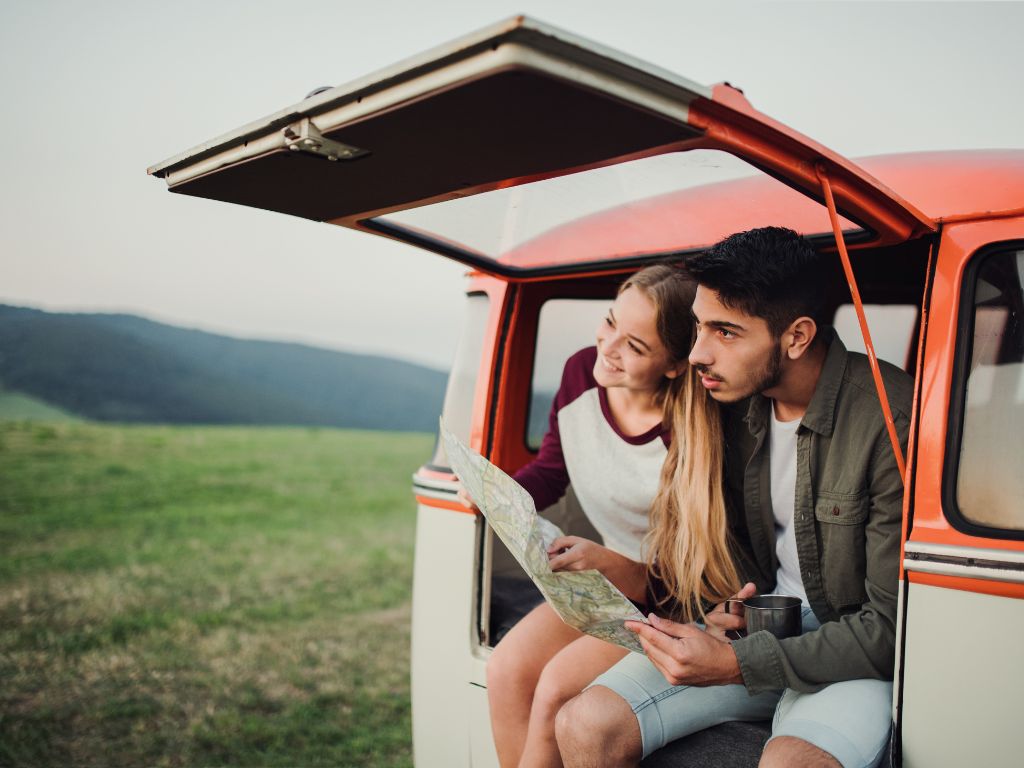
FAQ
What are the essential pre-travel health preparations?
Before you go on vacation, make sure to research your destination. Get any needed vaccinations. Also, copy important documents and sign up for the Smart Traveler Enrollment Program (STEP).
Why is travel health insurance important?
Many health plans don’t cover you outside the U.S. So, buying travel insurance can help you with unexpected medical costs or emergencies on your trip.
What should I include in my travel health kit?
Your kit should have your prescription and over-the-counter medicines. Don’t forget a first aid kit, insect repellent, sunscreen, hand sanitizer, and your health insurance info.
How can I stay safe on the road while traveling?
Always wear seatbelts and avoid dangerous driving habits. Be careful when crossing streets, especially in places where cars drive on the left side.
How can I protect myself from bug-borne illnesses?
Use insect repellent that’s EPA-approved. Wear long sleeves and pants. Treat your clothes with permethrin. And try to stay indoors during peak mosquito times.
What should I know about food and water safety while traveling?
Stick to hot, dry, and packaged foods and bottled or clean water. Avoid ice, raw produce, and undercooked meat or seafood.
How can I prioritize my overall health and wellness during my vacation?
Get enough sleep and drink plenty of water. Choose healthy foods. Manage stress. And protect yourself from the sun’s harmful UV rays.
What should I do if I get injured or become ill while traveling?
Look up healthcare options before you go. Be ready to give your insurance info and medical history to doctors.
What should I do after returning from my trip?
Watch your health closely after you get back. See a doctor if you have any worrying symptoms within a few weeks. This is especially true if you visited places with health risks.
Where can I find more resources for travel health and safety?
The CDC, WHO, and U.S. Department of State have lots of travel health advice. They also have info for specific countries to help you have a safe and healthy trip.

Source Links
- Holiday Travel Tips | Travelers’ Health – https://wwwnc.cdc.gov/travel/page/traveling-holidays
- Before You Travel | Travelers’ Health – https://wwwnc.cdc.gov/travel/page/before-travel
- The Pretravel Consultation | CDC Yellow Book 2024 – https://wwwnc.cdc.gov/travel/yellowbook/2024/preparing/pretravel-consultation
- Insurance Coverage Overseas – https://travel.state.gov/content/travel/en/international-travel/before-you-go/your-health-abroad/Insurance_Coverage_Overseas.html
- Getting Health Care During Travel | Travelers’ Health – https://wwwnc.cdc.gov/travel/page/health-care-during-travel
- Travel Insurance, Travel Health Insurance & Medical Evacuation Insurance – https://wwwnc.cdc.gov/travel/yellowbook/2024/health-care-abroad/insurance
- Survival Guide to Safe and Healthy Travel | Travelers’ Health – https://wwwnc.cdc.gov/travel/page/survival-guide
- Summer Driving Tips – https://www.nhtsa.gov/summer-driving-tips
- Travel Safety Tips – Nationwide – https://www.nationwide.com/lc/resources/home/articles/travel-safety-tips
- Preventing Mosquito Bites While Traveling – https://www.cdc.gov/mosquitoes/prevention/preventing-mosquito-bites-while-traveling.html
- Avoid bug bites | Travelers’ Health – https://wwwnc.cdc.gov/travel/page/avoid-bug-bites
- Travel Survival Guide & General Prevention – https://www.in.gov/health/idepd/refugee-and-international-health/travelers/travel-survival-guide-and-general-prevention/
- Food and Drink Considerations When Traveling | Travelers’ Health – https://wwwnc.cdc.gov/travel/page/food-water-safety
- Eat and drink safely – Travel.gc.ca – https://travel.gc.ca/travelling/health-safety/food-water
- Safety While Traveling Abroad – https://www.hopkinsmedicine.org/health/wellness-and-prevention/safety-while-traveling-abroad
- Preventing Heat-Related Illness – https://www.cdc.gov/extreme-heat/prevention/index.html
- Heat Illnesses | Travelers’ Health – https://wwwnc.cdc.gov/travel/page/heat-illnesses
- Sun and heat safety tips for travellers – Travel.gc.ca – https://travel.gc.ca/travelling/health-safety/sun-tips
- About Handwashing – https://www.cdc.gov/clean-hands/about/index.html
- Hand Hygiene and Personal Protective Equipment (PPE) – https://nchh.org/information-and-evidence/learn-about-healthy-housing/safe-cleaning-and-disinfection/healthy-homes-guide/hand-hygiene-and-ppe/
- Avoid Animals | Travelers’ Health – https://wwwnc.cdc.gov/travel/page/be-safe-around-animals
- Transporting animals: Basic requirements and considerations – https://www.avma.org/resources-tools/pet-owners/petcare/cvi/transporting-animals-basic-requirements-and-considerations
- Swimming and Diving Safety | Travelers’ Health – https://wwwnc.cdc.gov/travel/page/safe-swimming-diving
- Recommendations for Water Safety and Drowning Prevention for Travelers – https://academic.oup.com/jtm/article/13/1/21/1874180
- < These water safety tips can save lives – https://www.npr.org/transcripts/1199886191
- Your Health Abroad – https://travel.state.gov/content/travel/en/international-travel/before-you-go/your-health-abroad.html
- What To Do If You Get Sick While Traveling – https://www.hopkinsmedicine.org/health/wellness-and-prevention/what-to-do-if-you-get-sick-while-traveling
- How Much Medical Travel Insurance Do I Need? | Travelers Insurance – https://www.travelers.com/resources/travel/travel-medical-insurance-guide
- Common Health Risks, Required Precautions of Travelers and their Customs Towards the Use of Travel Medicine Services – https://www.ncbi.nlm.nih.gov/pmc/articles/PMC3732362/
- International Travel Safety Guide | ID Care – https://idcare.com/diseases/covid-19/a-safety-guide-for-international-travelers/
- For The Traveler – Heading Home Healthy – https://www.headinghomehealthy.org/traveler/
- Best Practices for Traveler Safety – https://travel.state.gov/content/travel/en/international-travel/before-you-go/about-our-new-products/Best-Practices-for-Traveler-Safety.html
- Health risks when travelling – https://www.who.int/news-room/questions-and-answers/item/health-risks-when-traveling
- Travel precautions – https://www.who.int/news-room/questions-and-answers/item/travel-precautions
